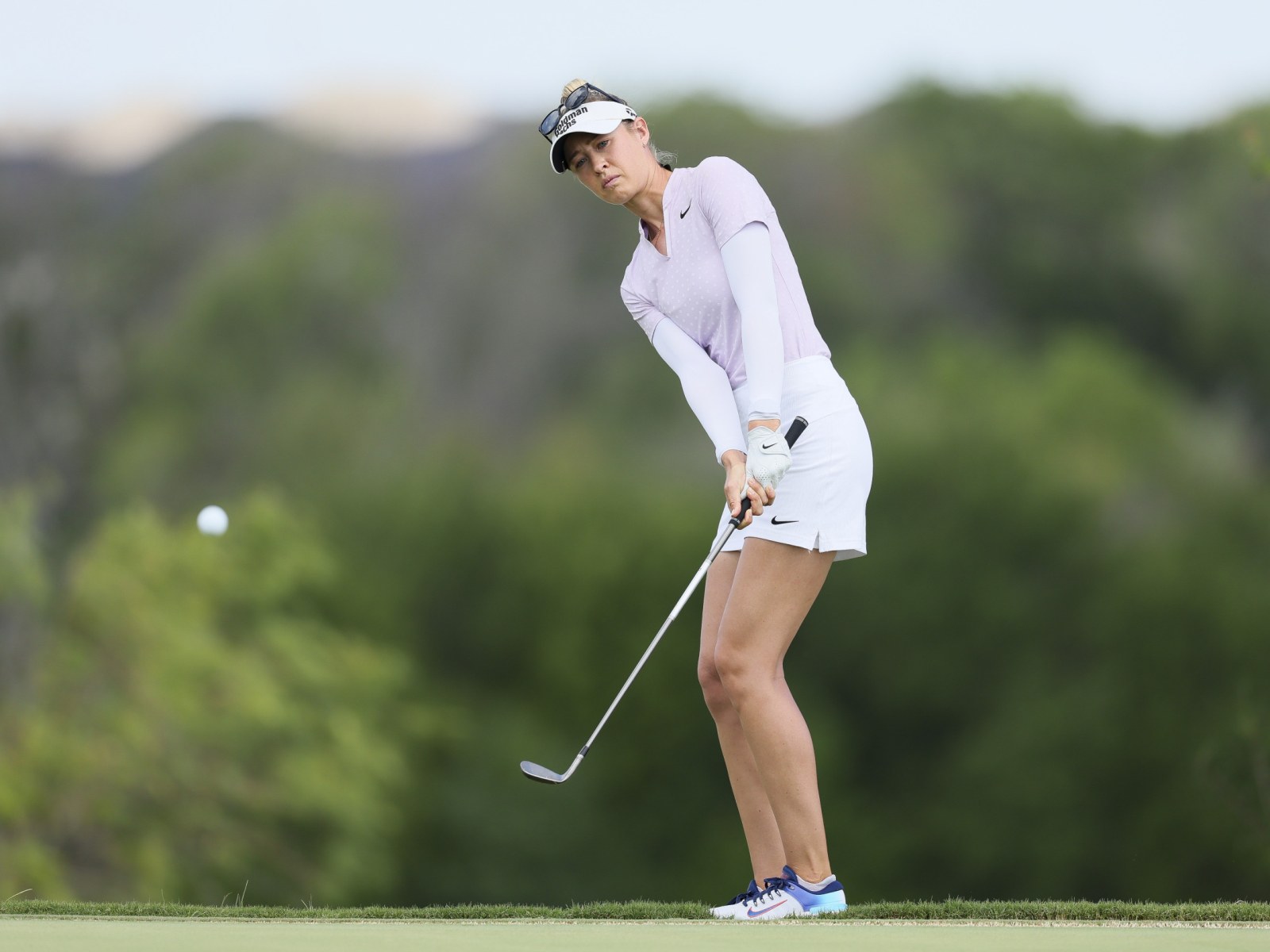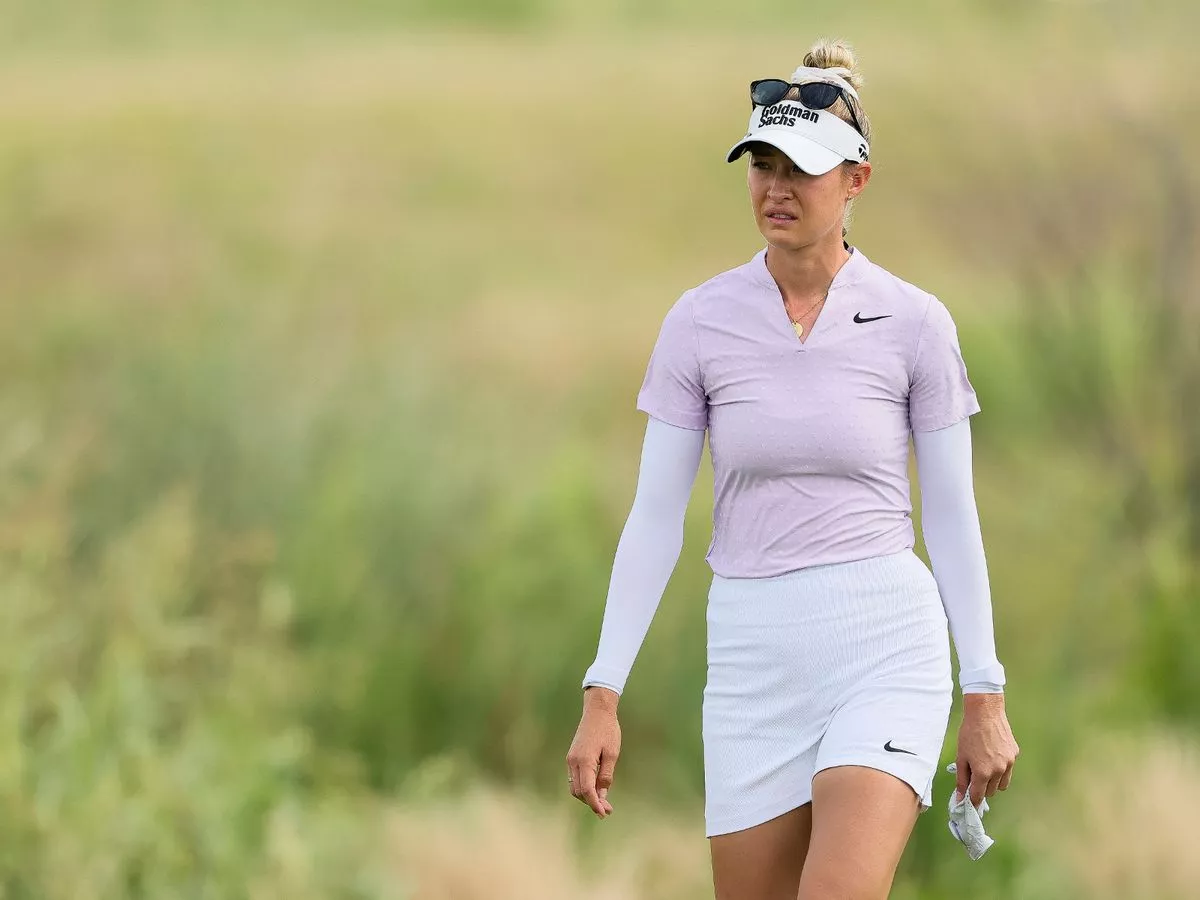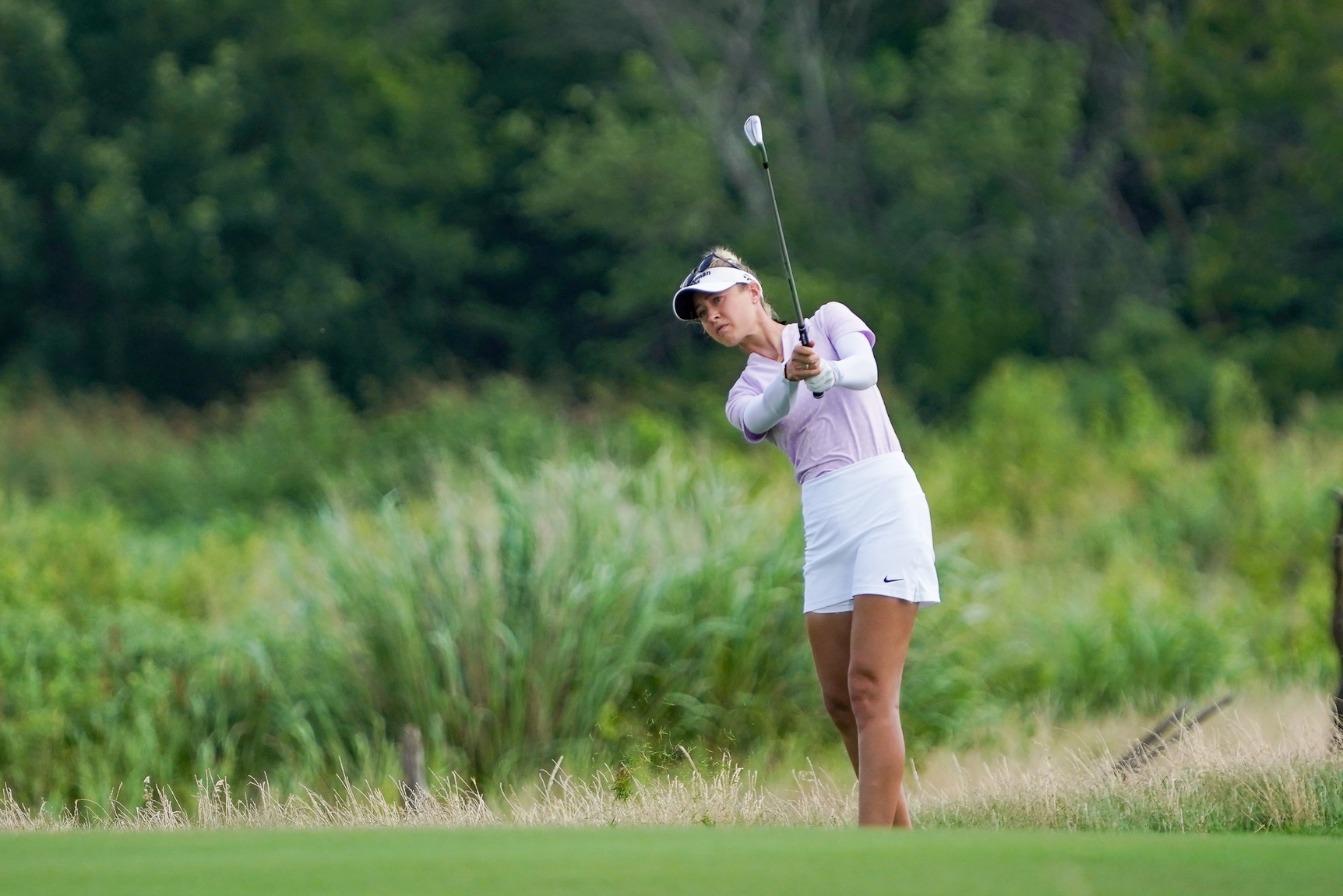Nelly Korda rips “ridiculous” slow play at Women’s PGA
During the KPMG Women’s PGA Championship held in Texas, world number one Nelly Korda voiced her concerns about the slow pace of play that characterized the tournament. After finishing the third round with a level-par score of 72, Korda found herself eight shots behind the leader, Minjee Lee. Her performance on the course was overshadowed by what she described as an excessively prolonged experience on the greens.
Korda shared her thoughts on the matter after completing her round, stating, “I think we played a two ball in like six hours. That’s just a little ridiculous.” This statement clearly reflected her disbelief regarding the length of time it took to compete in a two-player format. She further elaborated that the slow play was attributed to the challenging course conditions rather than simply poor time management by the players.
The Impact of Course Conditions
According to Korda, the unique characteristics of the course were a significant factor contributing to the sluggish pace. The firm ground, combined with tricky hole placements, created obstacles that made it difficult for players to reach the greens in a timely manner. This situation inevitably led to extended wait times as players struggled to adapt to the challenging conditions. Korda highlighted the importance of remaining patient during these prolonged periods of waiting, as players navigate tricky shots.
She remarked on the commonality of slow play, particularly in high-stakes tournaments like the Women’s PGA Championship. Korda acknowledged that such situations are not new in the realm of professional golf. Players often find themselves enduring long waits, which can disrupt their concentration and rhythm during a critical phase of the competition.
Collective Experience Among Players
Despite her frustrations, Korda recognized that all of the players involved were facing the same challenges. She emphasized that the slow pace of play affected everyone equally, underscoring a shared experience among competitors. In a format where momentum plays a significant role, the interruptions caused by prolonged waits can be detrimental, particularly during crucial moments of a tournament.
For Korda, the lack of momentum is particularly concerning during a major championship where every shot counts and the stakes are high. The pressure of maintaining focus while waiting can weigh heavily on players, ultimately affecting their performance. This perspective sheds light on the emotional and psychological toll that slow play can impose on professional golfers.
The Ongoing Debate on Slow Play in Golf
The issue of slow play is not merely a personal frustration for Korda; it is a wider topic that resonates with many golfers and sports commentators. The discussions surrounding slow play often center on the need for reform in how tournaments are structured and how players are managed on the course.
Many within the golfing community believe that implementing stricter time limits and setting clear expectations for players could help alleviate this ongoing issue. The potential for reforms has become a focal point of conversation in various golfing forums and among fans, suggesting that addressing this problem could enhance the overall experience of both players and spectators alike.
Looking Ahead
As Korda and her fellow competitors continue to navigate the challenges of slow play, there is hope for a future where the game can maintain a brisk pace without compromising the integrity of competition. The KPMG Women’s PGA Championship has highlighted a critical need for reflection and potential change within the sport. This call for improvement is echoed among both players and fans, fostering an ongoing dialogue that seeks to enhance the game for everyone involved.
The frustrations of slow play voiced by Nelly Korda serve as a reminder of the complexities of competitive golf. As this issue continues to receive attention, it paves the way for a potential evolution within the sport, promoting faster play and ultimately providing a more enjoyable experience for all involved. To stay informed on developments in golf and the broader sports world, fans can follow Nelly Korda’s journey and the ongoing discussions surrounding tournament play.



